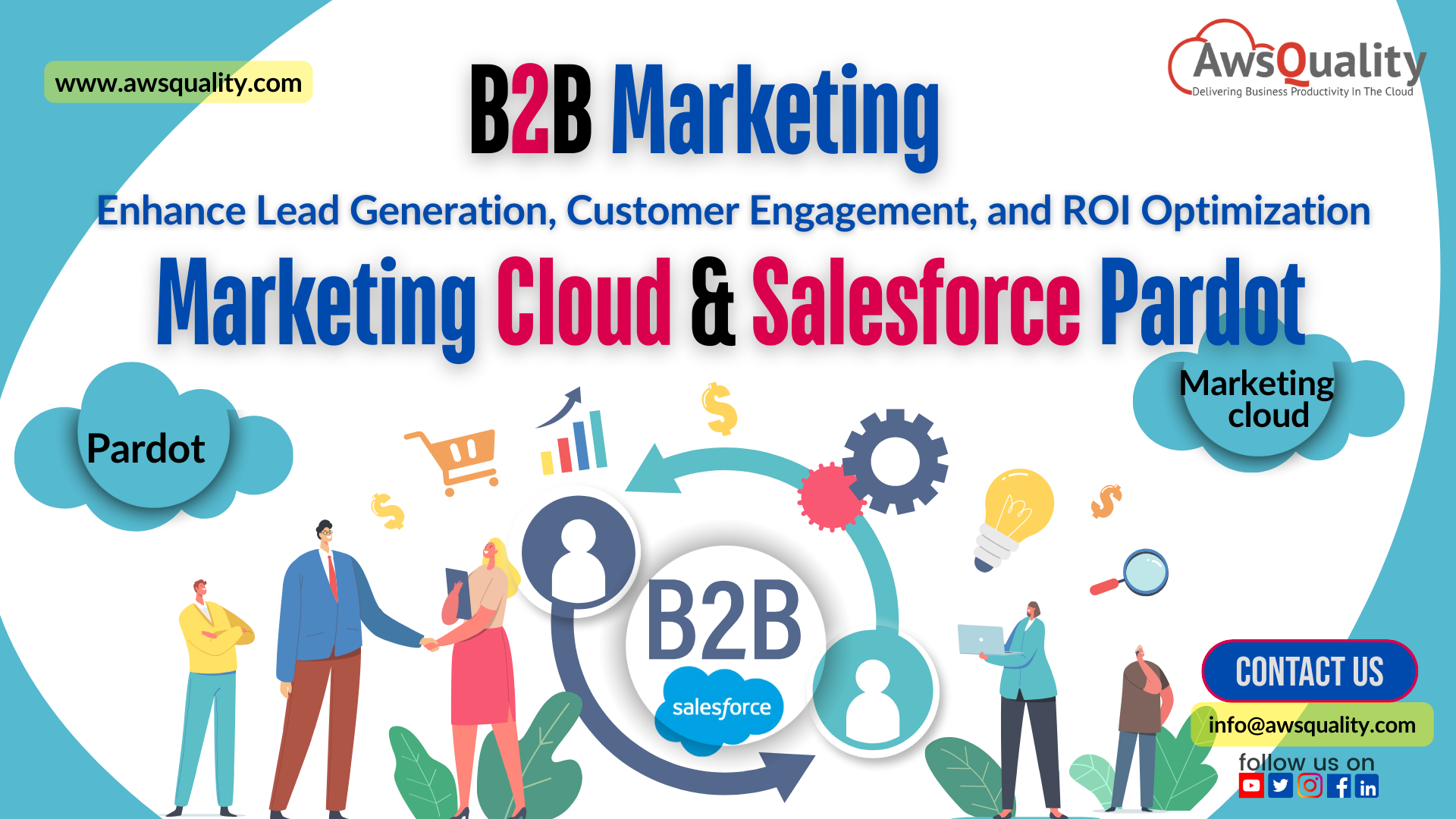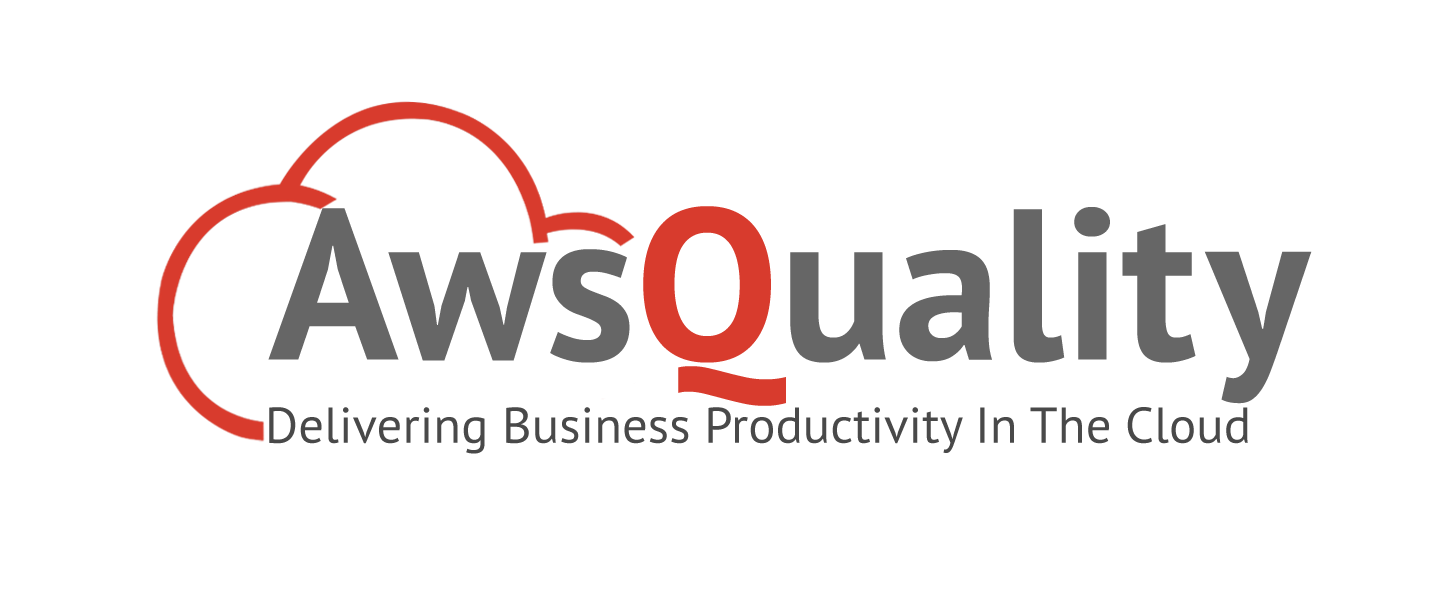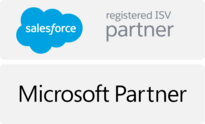
Boost the potential of Salesforce Pardot and Marketing Cloud to optimize your marketing and sales endeavours. Use multi-channel marketing and focused communication to encourage strategic B2B transactions. To succeed with your marketing strategy, read the complete article to gain the best insight.
Salesforce Sales Cloud can be easily integrated with Salesforce Pardot, a comprehensive B2B marketing automation platform, to improve lead creation, nurturing, and ROI optimization. It is excellent at coordinating sales and marketing initiatives and cultivating enduring customer connections through focused communication. Salesforce Marketing Cloud (previously Pardot) offers support for a wider range of channels for transactional transactions, whereas Pardot concentrates on B2B marketing. Learn how to change your marketing approach and achieve success using Salesforce products like Pardot and Marketing Cloud.
Enhance ROI Optimization, Customer Engagement, and Lead Generation with AwsQuality
Salesforce Pardot
Let’s take a closer look at Salesforce Pardot, a potent B2B marketing automation tool that helps companies close deals faster and cultivate enduring clientele. The salient features of Pardot are as follows:
Salesforce Pardot: What is it?
For corporations and enterprises, Salesforce Pardot is a complete marketing automation solution. One of the greatest CRM software platforms available today, Salesforce Sales Cloud, simply connects with it.
Pardot assists businesses with automating, analyzing, organizing, and gauging the success of their marketing and sales initiatives.
Principal attributes and advantages:
- Lead Generation: Marketing teams can consistently find and attract high-quality prospects with the help of Pardot. To draw in potential customers, you can make unique landing pages, forms, and offers.
- Nurturing Leads: You may foster human-to-human B2B connections that develop into successful partnerships by using deep customer information. Pardot uses targeted and tailored communication to identify leads that are most likely to convert and advance them along the sales funnel.
- Integration with Salesforce: Pardot serves as a go-between for your Salesforce CRM and unknown visitors that are later converted to known prospects. It guarantees that only leads that demonstrate a willingness to buy are forwarded to the CRM.
- Optimizing ROI: Pardot increases operational efficiency and frees up staff to concentrate on value-generating activities by automating repetitive marketing chores. It ensures you never pass up excellent possibilities by assisting with the creation and upkeep of a robust sales funnel.
Why Opt (choose) for Pardot?
- Smooth Integration:
The marketing and sales teams can collaborate efficiently with Pardot’s Salesforce integration. - Lead nurturing:
It offers resources to locate and develop prospects, finalize agreements, and optimize return on investment. - Customer-Centric Engagement:
Pardot uses extensive data to help develop timely, relevant, and tailored engagement activities. - Long-Term Relationships:
You can create and preserve long-term customer relationships with Marketing Cloud Account Engagement (previously Pardot).
Salesforce Pardot provides a strong solution to meet your objectives, whether you want to increase lead generation, optimize marketing campaigns, or improve client interactions.
Marketing cloud account engagement with Salesforce Pardot.
Now let’s examine how Pardot and Marketing Cloud Account Engagement—previously called Pardot—differ:
-
Account Engagement with Pardot:
- Principal Use:
B2B marketing is the main use for Pardot. It focuses on deliberate purchases, which entail several decision-makers and protracted sales cycles. - Functionality:
By enhancing lead nurturing and generating new leads, Pardot facilitates the alignment of marketing and sales initiatives. It offers resources for efficiently locating and gaining new clients. - Channels:
Pardot works well for business-to-business (B2B) marketing and mostly uses email.
-
Account Engagement in Marketing Cloud (formerly Pardot):
- Principal Goal: Marketing Cloud Account Engagement is still intended to fulfill B2B marketing requirements. By coordinating marketing initiatives with sales targets, it facilitates more successful sales and enduring client connections.
- Functionality: This solution gives salespeople and marketers the knowledge and resources they need to develop leads and close sales. It includes a broad range of marketing initiatives, such as e-commerce and advertising campaigns.
- Channels: Email, social media, text messages, and display ads are just a few of the channels that Marketing Cloud uses to conduct business.
A comparison between Salescloud and Marketing Cloud
Let us look at the differences between Salesforce Pardot and Salesforce Marketing Cloud, which was formerly known as Pardot:
-
Pardot Account Engagement:
- Principal Use: Pardot is mostly used for B2B marketing. It centers on intentional purchases, which need multiple decision-makers and lengthy sales cycles.
- Functionality: Pardot helps to unify marketing and sales initiatives by improving lead nurturing and creating new leads. It provides tools for effectively finding and acquiring new customers.
- Channels: Pardot primarily employs email and is effective for business-to-business (B2B) marketing.
-
Salesforce Marketing Cloud:
- Principal Goal: Marketing Cloud, formerly Pardot, is still there to support B2B marketing requirements. By coordinating marketing initiatives with sales targets, it facilitates more successful sales and enduring client connections.
- Functionality: This solution gives salespeople and marketers the knowledge and resources they need to develop leads and close sales. It includes a broad range of marketing initiatives, such as e-commerce and advertising campaigns.
- Channels: Email, social media, text messages, and display ads are just a few of the channels that Marketing Cloud uses to conduct business.
Despite certain similarities, the two instruments are designed for distinct purposes. While Marketing Cloud is more appropriate for transactional purchases made through a variety of channels, Pardot (formerly known as Marketing Cloud Account Engagement) is the best option for B2B marketing with thoughtful purchases. Keep in mind that these divisions are not absolute and that, depending on their particular requirements, organizations may use them in different ways.
In conclusion,
Marketing Cloud Account Engagement, formerly known as Salesforce Pardot, is a powerful B2B marketing automation solution that works in unison with Salesforce CRM. It boosts ROI, nurturing, and lead creation. Although Pardot concentrates on strategic email-based B2B purchases, the Marketing Cloud provides a multi-channel strategy for transactional sales. Visit AwsQuality Technologies [www.awsquality.com] to learn how Salesforce solutions may improve your marketing strategies.




